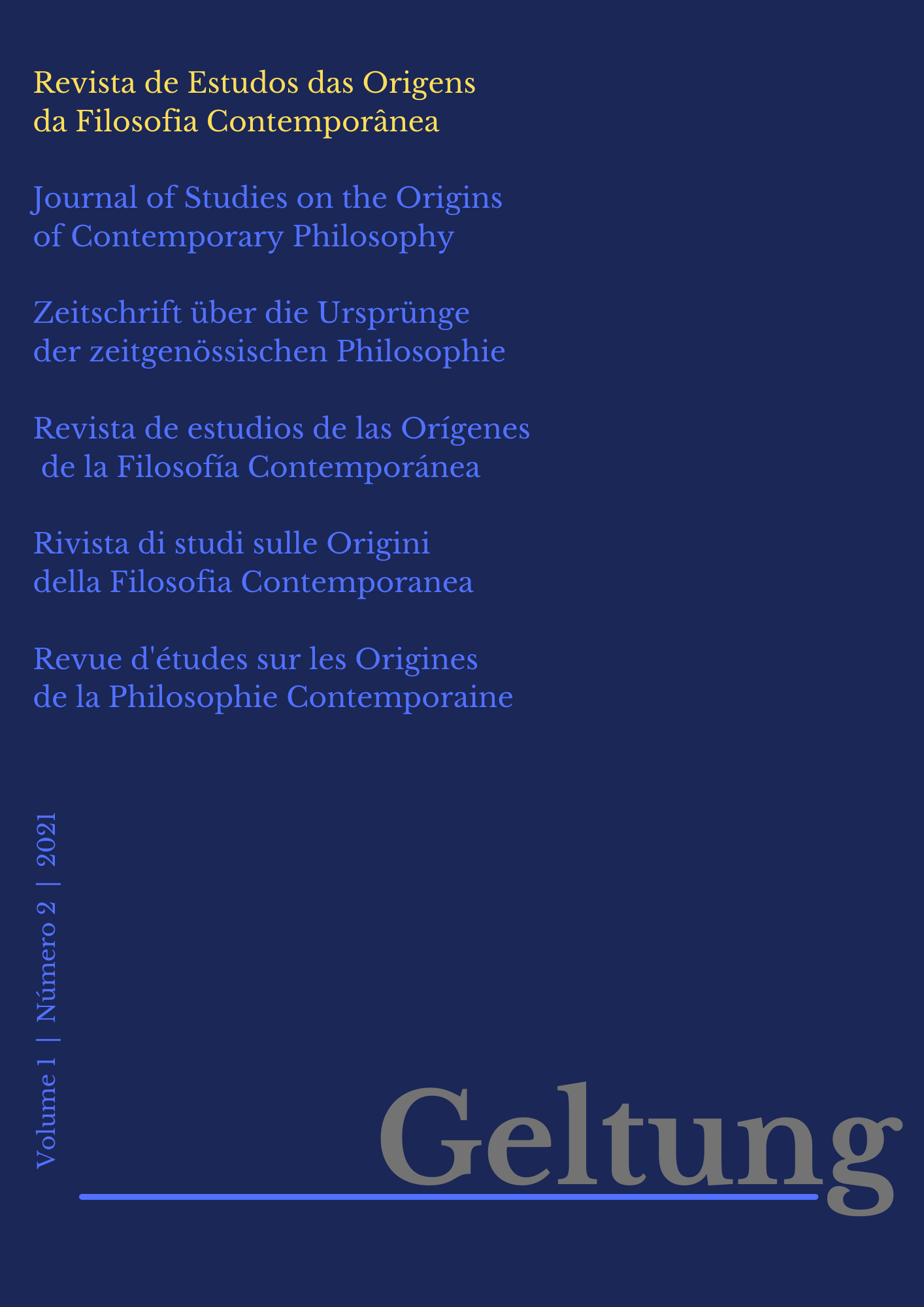Dogma, Assertive grounds and forms of Truth-assignment failure
A philosophical reading of the gains of Kripke’s take on truth and risk in 1975
DOI:
https://doi.org/10.23925/2764-0892.2021.v1.n2.e57747Keywords:
Kripke, Paradox, Fixed-Point, Dogma, TruthAbstract
This short paper focuses on Kripke's paper on truth from 1975. It is 1. a historiographical commentary, 2. an argument about the advantages of the theory, and 3. an interpretation of its philosophical meaning. 1. Kripke presents a diagnosis of semantic paradoxes based on their similarity with ungrounded sentences. Based on Kleene's three-value logic, he then shows that it is possible to find fixed points in which the assertion of an unsubstantiated (non-paradoxical) sentence can sustain a cumulative distance with its anti-extension. 2. We argue that Kripke's paper has the advantage of explaining risk in truth assessments. It provides a framework to solve problems of languages that have their truth predicate. Although compatible with Tarski's, this solution more faithfully paints the speculative and revisionist representation of assignments of truth. It exhibits the conditions of stable risk assertions (whose fixed point accumulates semantic value in a single direction) and distinguishes it from irrational assertions, which, as dogmas, base their risk on arbitrary points and provide an unstable basis for truth assertions.
References
BELNAP, Nuel; GUPTA, Anil. The Revision Theory of Truth, Cambridge, Mass., and London: MIT Press (Bradford Books), 1993.
BURGE, T. "Semantical Paradox", Journal of Philosophy v. 76, p. 169–98, 1979. Reprinted in Martin, p. 83–117), 1984.
DAVIDSON, Donald. Inquiries into Truth and Interpretation. Oxford: University Press, 2001
HARTRY, Field. Saving Truth from Paradox. New York: Oxford University Press, 2008.
HALBACH, V; HORSTEN, L. “Axiomatizing Kripke’s Theory of Truth”. The Journal of Symbolic Logic, v. 71, n. 2, p. 677–712, 2006. in: <http://www.jstor.org/stable/27588473>.
KREMER, Phillip. “How Truth Behaves When There’s No Vicious”. Journal of Philosophical Logic, Aug., 2010.
KRIPKE, Saul. “Outline of a Theory of Truth”. The Journal of Philosophy. Seventy-Second Annual Meeting American Philosophical Association, Eastern Division, v. 72, n. 19, p. 690-716, 1975.
MAUDLIN, Tim. Truth and Paradox: Solving the Riddles. Oxford: Clarendon Press, 2004.
MCGEE, Vann. Truth, Vagueness, and Paradox: An Essay on the Logic of Truth. Hackett Publishing Company, 1990.
PLEITZ, Martin. Logic, Language and the Liar Paradox. Munster, Germany: Mentis, 2018.
QUINE, W.V.O. Carnap and Logical Truth. The Ways of Paradox. Cambridge: Harvard University Press, 1994.
QUINE, W.V.O. Two Dogmas of Empiricism. From a Logical Point of View. Harper Torchbooks, 1963.
RUSSELL, Bertrand. My Philosophical Development. London, Sydney, and Wellington: Unwin, 1985 [1959].
TARSKI, A. The Concept of Truth in Formalized Languages. Reprinted in Logic, Semantics, Metamathematics. Papers from 1923 to 1938. p. 152–278, 2 ed. Indianapolis, Hackett Publishing Company, 2006.
TARSKI, A. “The Semantic Conception of Truth: And the Foundations of Semantics”. Philosophy and Phenomenological Research, p. 341–376, 1944.
TARSKI, A. Truth and proof. Scientific American, v. 220, n. 6, p. 63-77, 1969.
WRIGHT, Crispin Truth and Objectivity, Cambridge, Mass.: Harvard University Press, 1992.
Downloads
Published
How to Cite
Issue
Section
License
Copyright (c) 2022 Geltung - Journal of Studies on the Origins of Contemporary Philosophy

This work is licensed under a Creative Commons Attribution-NonCommercial-NoDerivatives 4.0 International License.

This work is licensed under a Creative Commons Attribution 4.0 International License.






